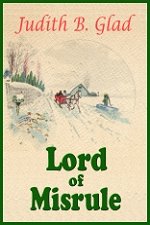
Søren Kierkegaard - "Søren Aabye Kierkegaard (b.1813, d. 1855) was a profound and prolific writer in the Danish "golden age" of intellectual and artistic activity. His work crosses the boundaries of philosophy, theology, psychology, literary criticism, devotional literature and fiction. Kierkegaard brought this potent mixture of discourses to bear as social critique and for the purpose of renewing Christian faith within Christendom. At the same time he made many original conceptual contributions to each of the disciplines he employed. He is known as the "father of existentialism", but at least as important are his critiques of Hegel and of the German romantics, his contributions to the development of modernism, his literary experimentation, his vivid re-presentation of biblical figures to bring out their modern relevance, his invention of key concepts which have been explored and redeployed by thinkers ever since, his interventions in contemporary Danish church politics, and his fervent attempts to analyse and revitalise Christian faith. Kierkegaard burned with the passion of a religious poet, was armed with extraordinary dialectical talent, and drew on vast resources of erudition. "
Georg Wilhelm Friedrich Hegel - First published Thu Feb 13, 1997; substantive revision Mon Jun 26, 2006
Along with J. G. Fichte and F. W. J. von Schelling, Hegel (1770-1831) belongs to the period of “German idealism” in the decades following Kant. The most systematic of the post-Kantian idealists, Hegel attempted, throughout his published writings as well as in his lectures, to elaborate a comprehensive and systematic ontology from a “logical” starting point. He is perhaps most well-known for his teleological account of history, an account which was later taken over by Marx and “inverted” into a materialist theory of an historical development culminating in communism. For most of the twentieth century, the “logical” side of Hegel's thought had been largely forgotten, but his political and social philosophy continued to find interest and support. However, since the 1970s, a degree of more general philosophical interest in Hegel's systematic thought has also been revived.
- Entombment - Theme in Antigone. (Interesting that the movie the Illusionist is such a hit. Are we going back to the Victorian age that was as obsessed with death and tragedy as the Greeks?)
- Hysterical means women with detached wombs(hysterectomy)(I caution people that the included link my be thought of as a bit perverse).
- Steiner - Pg. 231-277 will be tested on.
- Steiner - Pg. 232 professes the importance of lines 441-581 in Antigone.
- Mythos - story.
- Natalie Davis
- Belle et la Bete - author Jean Marie Leprince de Beaumont
- Tragedy - All in the family meaning all families are dysfunctional, and you need look no further than your family for tragedy.
- Europa rode off on Zeus disguised as a bull, sister to Cadmus.



No comments:
Post a Comment